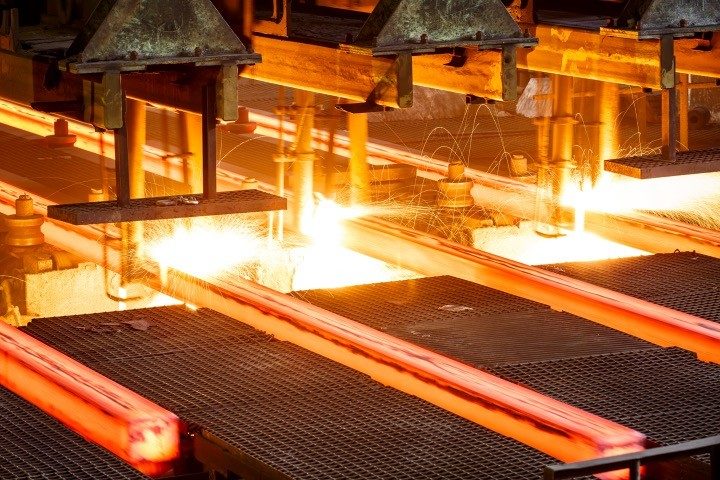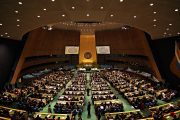
SINGAPORE — In December 2022, Indian Finance Minister Nirmala Sitharaman voiced fears over impending tariffs on Delhi’s steel exports enforced by other nations, lambasting foreign governments’ inclinations to “fund their transition to [a] green economy by raising tariffs on imports from countries like India.”
Sitharaman lambasted the fact that a carbon tax on Indian exports by other countries “would affect” India directly. “When you are going to export your steel, you would be facing tariff walls in the name of climate action tax,” she stated during a keynote address at the 95th annual convention of the Federation of Indian Chambers of Commerce and Industry (FICCI) in Delhi.
The minister highlighted that tweaking national policies to align with green standards was a source of worry for both India and other developing nations, and urged Indian industry to fully comprehend the new climate taxes and “reset” itself so that domestic exporters would be prepared for the impending “tariff walls.”
“I want the industry to be fully seized of the increased costs they will face in the transition to cleaner energy,” Sitharaman said. She added that the Indian government would offer full diplomatic backing to domestic exports to face the challenges owing to the new tariffs.
Her criticisms come just a few days after the globalist and climate-alarmist European Union (EU) inked an agreement to enforce a carbon tax on imports of cement, steel, aluminum, fertilizers, and electricity production in order to pursue its own “climate” agenda.
Although the EU’s Carbon Border Adjustment Mechanism, the world’s first carbon tax, will not fully materialize until 2026, its phase-in will start with reporting obligations in October 2023.
At November’s COP27 climate conference in Egypt, India — together with China, Brazil, and South Africa, an informal grouping known as the BASIC countries — asserted that such a tax will lead to “market distortion” and worsen the “trust deficit” between the developing nations and the rich countries.
Also at the November conference, India’s Minister for Environment, Forest and Climate Change Bhupender Yadav lashed out at industrialized countries over their collective debacle in not fulfilling climate-financing responsibilities to developing nations.
Such financing was supposed to be set aside to encourage the transition to renewable and other green forms of energy. “The failure to deliver financial resources to developing countries is an enormous failure. Calling for ambition from developing countries is not meaningful if the time required from low-carbon development is not recognized,” Yadav remarked.
He further stated that developed countries also failed to uphold their commitments to lower their greenhouse gas emissions (GHGs): “If goalposts are changed constantly, it will not yield results but only words and promises,” lambasted the Indian minister.
At the COP15 Summit in Copenhagen in 2009, developed countries agreed to jointly supply $100 billion to low- and middle-income countries to fulfill energy transition goals.
At the COP21 Conference in Paris in 2015, those countries reinforced their $100 billion aid pledge, and all countries also agreed to restrict global warming to below 1.5 degrees Celsius of pre-industrial levels.
Yadav said that it was still too premature to amend the goals set out at the Paris climate conference, as enforcement had “just begun.” “The first global stocktaking is underway and will conclude next year. So why is there any need to start talking of the adequacy of the provisions of the Paris Agreement?” he asked.
He said that it was essential for developing nations to be able to obtain financial resources and technological expertise to attain “low-carbon development,” and that “just transition” in developing countries was about enabling “low-carbon” development instead of coercing the low- and middle-income nations to decarbonize before their emissions peak, as in the case of the rich industrialized nations.
Notably, Yadav maintained that fossil fuels like coal would continue to be part of the energy mix of the developing nations in order to safeguard people’s “energy security.”
At present, India is the world’s second biggest producer and consumer of coal, with demand slated to exceed a billion tons in 2023. New Delhi announced that coal has become even more crucial to sustaining its economic growth amid skyrocketing prices of oil and natural gas.
India’s coal minister, Pralhad Joshi, added that coal will still dominate the country’s energy mix after 2040, as domestic demand for the black rock would continue to peak beyond that time.
In a speech to parliamentarians at a meeting of a Parliamentary Consultative Committee, Joshi said that coal was of “primary importance” to sustain the growth momentum of India’s economy owing to its prevalent use in critical industries such as steel, sponge iron, aluminum, cement, and paper.
“Thus, no transition away from coal is happening in the foreseeable future in India,” he said. In a snub to globalists and climate alarmists, the minister elaborated that the current global push to transition away from fossil fuels such as coal and crude toward “greener” sources of energy has been dwarfed by the affordability of coal as a source of energy in light of high energy prices.
The country’s coal secretary, Amrit Lal Meena, pointed out that the transition away from a carbon-intensive energy source like coal to low-carbon sources would only be feasible if the end users and industries were adequately compensated.
Yadav also warned that progress on achieving the Deep State/United Nations-endorsed Sustainable Development Goals by 2030 risked being delayed if rich nations pressured less-developed countries to transition to cleaner energy sources without the appropriate technological and financial means.
For years, climate alarmists and green globalists have been promoting the UN’s goals on the pretext of eliminating extreme poverty and hunger and ensuring access to clean and affordable energy for every person by 2030.



